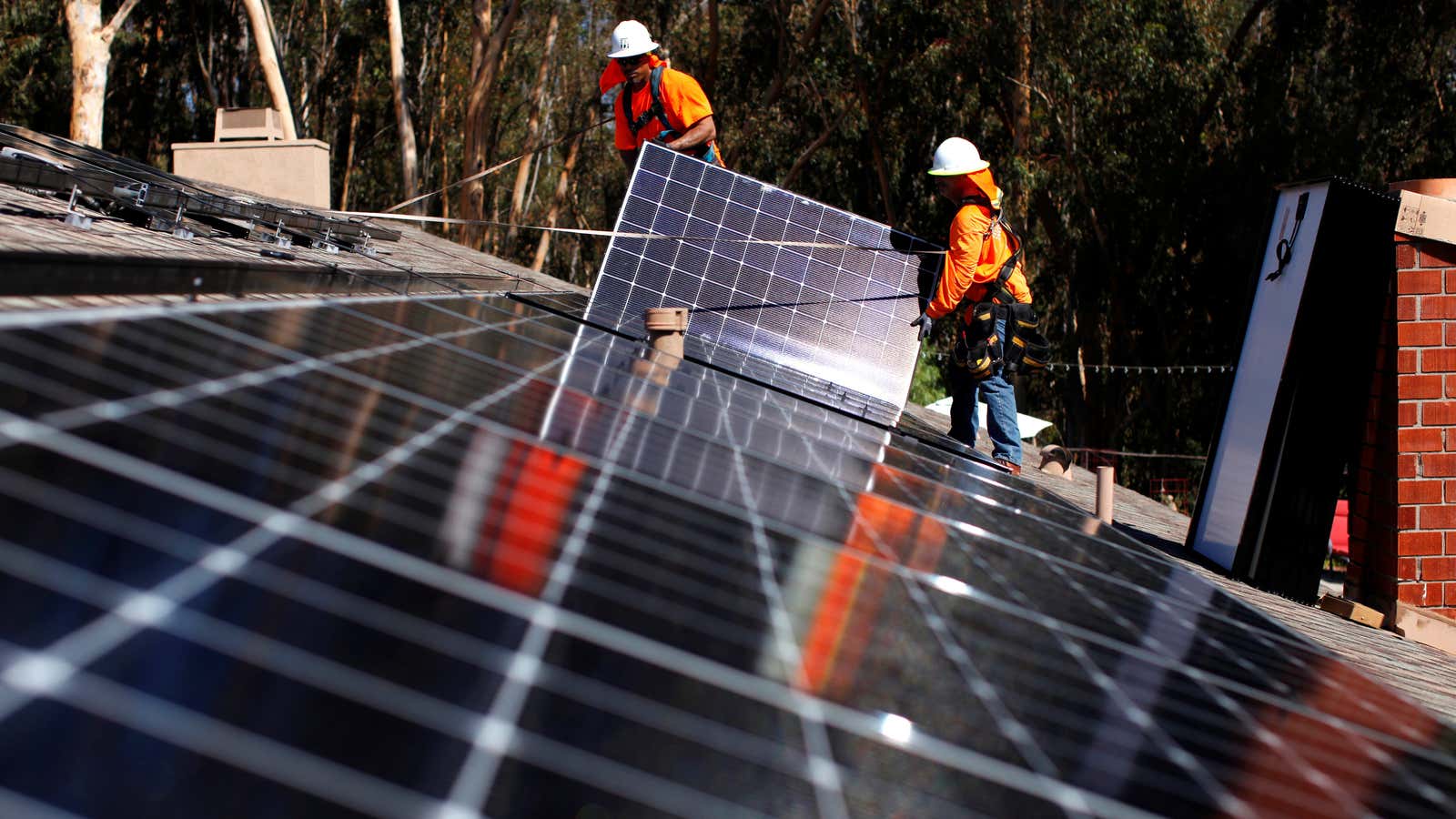Clean energy jobs in the US are being wiped out on a massive scale by the economic shutdown caused by the Covid-19 pandemic, according to new data from the advocacy and research group Environmental Entrepreneurs (E2). At least 106,400 jobs in the clean energy sector—for builders of electric vehicles, installers of solar panels, energy efficiency retrofitters, and more—were lost in March alone, the analysis found.
With many construction projects on hold, companies slashing discretionary spending, and crucial clean energy tax credits up in the air, “those workforces are getting thrown to the sidelines,” said Ellen Hughes-Cromwick, a fellow at the think tank Third Way and former Obama administration economist who was not involved in the E2 analysis. “Clean energy is one of the first things to get thrifted when you go into a downturn.”
If the pattern continues, the sector could lose half a million jobs by the summer, E2 projects, wiping out the growth of at least the last five years.
Most of the March job losses were in the energy efficiency sub-sector, which involves upgrades to commercial and office buildings. With most of those closed and construction jobs put off, there’s little work to be done.
April is likely to be “another ugly month,” Hughes-Cromwick said. The numbers aren’t likely to rebound for some time, even after social distancing measures are relaxed, she said: Consumer spending and capital investment by companies are both likely to remain tepid, especially for non-essential services like clean energy, while the economy gets back on its feet.
It’s too early to tell where the bottom might be. That will likely depend on what kind of support, if any, Congress offers to the sector in its next round of stimulus funding.
Solar and wind companies, especially, are after extensions of tax credits that offset the costs of installing and operating panels and turbines, allowing these companies to offer prices that compete better against fossil fuel-powered electricity. These credits are due to phase out over the next year or two, meaning that construction delays could be fatal to some projects; the wind industry estimates that $35 billion in investments are at risk.
“We can’t leave this up to chance and let the chips fall where they may,” said Hughes-Cromwick.
